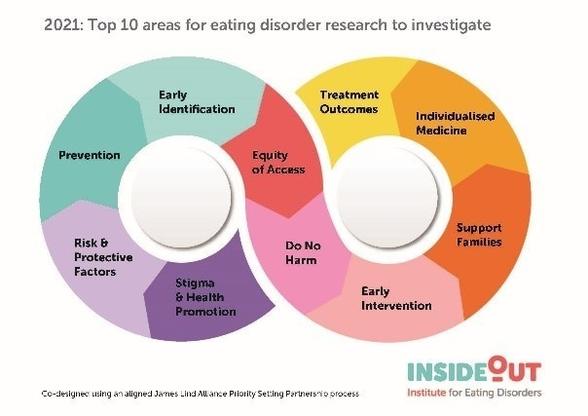A 10-year national research and translation strategy has been released to help improve early identification, treatment and prevention of eating disorders for nearly one million Australians experiencing them.
The Australian Eating Disorder Research and Translation Strategy 2021-2031 was developed under a $4 million federal grant to the University of Sydney’s InsideOut Institute.
At least one million Australians are affected by anorexia nervosa, binge eating disorder, bulimia nervosa and other eating disorders, but only about 200,000 individuals receive evidence-based treatment.
The strategy is focused on eating disorder research and the translation of that research into practice.
Eating disorders are complex mental illnesses and most people with a disorder are not identified through primary health care. About 70 per cent do not access treatment at all.
A $13 million National Eating Disorder Research Centre will also be established as part of the strategy.
The dedicated centre of excellence will lead ground-breaking research to help advance understanding of eating disorders and the most effective approaches to prevention, early intervention and treatment. The centre will encourage eating disorder researchers and health care providers to collaborate and network.
A grant opportunity for the establishment of the centre closes on 15 November. Details of the grant opportunity are available here.
Director of the InsideOut Institute Dr Sarah Maguire said: “Eating disorders are poorly understood by the general public and medical professionals.
“We know that early intervention can prevent severe illness, we know that many people can fully recover if they get the right therapy at the right time,” Dr Maguire said.
Dr Sian McLean, President of the Australian and New Zealand Academy for Eating Disorders said: “We need to work with clinicians so they can intervene effectively, using the best research.”
“We all need to be aware of the early warning signs of eating disorders, especially in people who might not fit public stereotypes.”
The research strategy was develop with the input of 480 patient advocates, people with eating disorders, clinicians and researchers.
The top ten priority research areas are:
- Stigma and health promotion – how can public health messaging around healthy eating and weight be delivered without impacting on the development of eating disorders and inducing weight stigma?
- Risk and protective factors – what are the key risk and protective factors and how do they impact on the development of (or the risk of developing) an eating disorder?
- Prevention – are there particular strategies parents/families can use that help prevent the development of an eating disorder?
- Early identification – how can GPs and other health professionals better identify disordered eating and the symptoms of all stages of all types of eating disorder, and intervene appropriately as part of routine practice?
- Equity of access – How do we ensure all Australians have equitable access to effective eating disorder treatments no matter where they live or what they can afford?
- Do no harm – what are the positive and negative impacts of current treatment – how can we reduce the negative impact and increase the positive?
- Early intervention – what are the barriers to early intervention and how can these be addressed?
- Family support – what support and skills do families need to help their loved one at all ages and stages of treatment across the recovery journey?
- Individualised medicine – How can treatments be more individualised to consider diverse needs, stage of life, illness duration, type and diagnosis?
- Treatment outcomes – what existing eating disorder services, treatments, or treatment factors have the best long-term outcomes?
The strategies
The strategic priorities under the strategy are:
- Support and generate a culture of research and translation excellence
- Generate high quality research that impacts health outcomes and improves wellbeing
- Grow the research workforce capacity and capability
- Establish a strong translational focus within the research sector and across the system to accelerate the impact of research for people and communities.
- Establish quality mechanisms for broad implementation of evidence-based practice and practice informing evidence.
Read the Eating Disorders Strategy
- If you or anyone you know is concerned about eating disorder or body image issues, you can contact the Butterfly Foundation’s national eating disorders helpline, ED Hope, on 1800 33 4673 or through www.butterfly.org.au.
- Anyone experiencing distress can also seek immediate advice and support through Lifeline (13 11 14), Kids Helpline (1800 55 1800), or the Government’s digital mental health gateway, Head to Health (www.headtohealth.gov.au).

